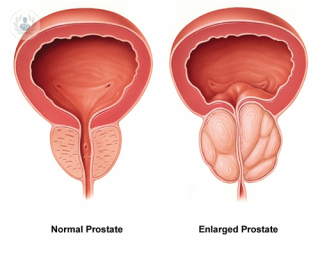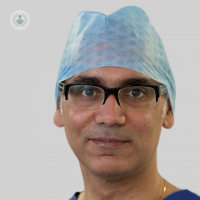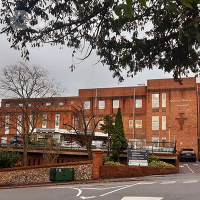Prostate cancer
What is prostate cancer?
Prostate cancer is the type of cancer that starts in the prostate gland. The prostate is part of the male reproductive system and is an organ that surrounds the urethra, the tube that carries urine out of the body. The prostate is responsible for producing seminal fluid.
Prostate cancer is the most common cancer in men, with 1 in 8 men affected. Every year, 11,000 men die from prostate cancer.
Prostate cancer can be categorised into four stages, indicating how far the cancer has spread:
- Stage 1 – the cancer is in only half of one side of the prostate and is contained within the prostate gland
- Stage 2 – the cancer is still in one side of the prostate but fills more than half of that side
- Stage 3 – the cancer has broken through the prostate gland and may spread to the seminal vesicles
- Stage 4 – the cancer has spread to the bladder, lymph nodes, bones, or other organs in the body

What are the symptoms?
Prostate cancer often does not present any symptoms at first. The symptoms that occur when the cancer starts to progress include:
- difficulty and pain when urinating
- needing to urinate frequently
- painful ejaculation
- blood in the urine
If the cancer spreads to the lymph node or pelvic bone, symptoms can include:
- pain in the lower back and pelvis that does not go away over time
- involuntary weight loss
Causes of prostate cancer or why it occurs
The exact cause of prostate cancer is unknown. Your risk of getting prostate cancer depends on:
- your age – prostate cancer is more common in men over 60 years old, and by the age of 80, 4 out of 5 men have cancer cells in their prostate
- your ethnicity – prostate cancer is more common in black men compared to white and asian men
- family history – you are twice as likely to develop prostate cancer if you have a father who had the disease
How is prostate cancer diagnosed?
Prostate cancer diagnosis consists of several stages. At first, the doctor will assess your likelihood of having prostate cancer by taking a urine sample, testing your blood for prostate-specific antigen (PSA), and examining your prostate. If they conclude you may have a high risk of prostate cancer, they will refer you for further tests. This can include:
- an MRI scan to create a detailed picture of your prostate and any cancer cells
- a biopsy to retrieve a small amount of tissue for testing
What is the treatment?
Treatment options depend on the stage of the cancer and the state of health of the patient.
For slow-growing cancer that is contained within the prostate cancer, the doctor may suggest a wait and see approach, where the prostate is regularly monitored but treatment delayed until necessary.
If the cancer requires treatment but has not spread outside the prostate gland, the most common treatments are:
- partial ablation – this treats part of the prostate that has cancer, preserving the rest of the prostate
- surgery – this can include radiotherapy or prostatectomy
If the cancer has spread beyond the prostate, the first line of treatment is hormone therapy. If this is not effective, chemotherapy or immunotherapy may be recommended. Prostate cancer is treated by a urologist or medical or clinical oncologist.
















